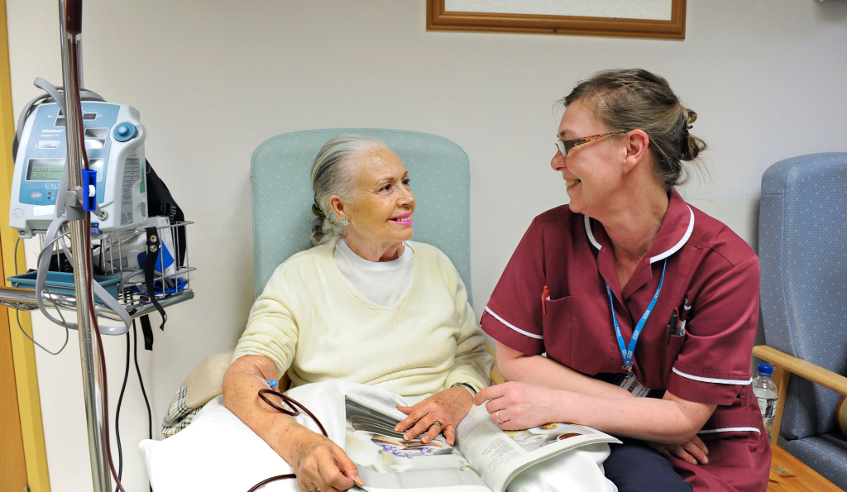
Patients at our partner hospitals are benefitting from our new targeted treatments, but regulations haven't kept pace with the personalised medicine revolution
It is 10 years since the sequencing of the human genome was completed in 2003 and the discoveries being made every day into the genetics of cancer are changing the way we treat this disease.
We are entering an era of personalised cancer treatment: doctors can increasingly tailor treatments to particular molecular features of a patient's tumour, and are even beginning to design treatment strategies designed to reduce the risk of drug resistance.
But testing targeted and personalised treatments is a challenge for researchers, because by definition they only tend to work in a proportion of your overall patient population. There are now a large number of treatments being developed for a specific biological marker or gene, which so only patients with the right genetic make-up can participate in trials. To get the necessary patient numbers, researchers often need to run clinical trials internationally – and that’s when they run into a regulatory brick wall.
I talked to one of our researchers at the
Clinical Trials and Statistics Unit (ICR-CTSU) here at The Institute of Cancer Research, London, who said that European-wide regulations, in the form of the EU Clinical Trials Directive, have "crushed research". The directive is particularly problematic for cancer trials, where the average delay from launching a clinical trial has increased substantially since the introduction of the directive, to 152 days. Targeted treatment trials can take a year to get all of the agreements, approvals and logistical arrangements in place.
The
EU Clinical Trials Directive (Directive 2001/20/EC) was implemented in the UK in 2004 with the aim of simplifying the administrative requirements for clinical trials across the EU, whilst ensuring the safety of clinical trial participants. But the additional legal obligations for researchers, combined with other countries in the EU interpreting the directive in different ways, have actually increased the expense and bureaucracy of research.
That's a big deal for the ICR, which runs a high number of clinical trials every year: at any one time we run more than 30 trials jointly with The Royal Marsden at the
Drug Development Unit, and slightly more at the ICR-CTSU.
So what needs to change to improve clinical trials?
In July 2012, the European Commission launched a proposal for a new
EU Regulation on clinical trials, which seeks to address issues with the current directive. ICR staff are working with
Cancer Research UK and other medical research organisations across the academic, charitable and hospital sector to comment on these proposals, ensuring that clinical trial regulation in Europe becomes more efficient, harmonised and risk proportionate.
Let's hope that well before another 10 years are up, we have a regulatory landscape capable of coping with the rapid advances we are seeing in personalised cancer treatment.
How can I find out more about clinical trials?
Our advice to patients looking to be part of a clinical trial at the ICR or elsewhere is to contact your clinician first. You can also find out more from Cancer Research UK's CancerHelp website and information line, which provide information, support and advice to people with cancer, their families and friends.
comments powered by